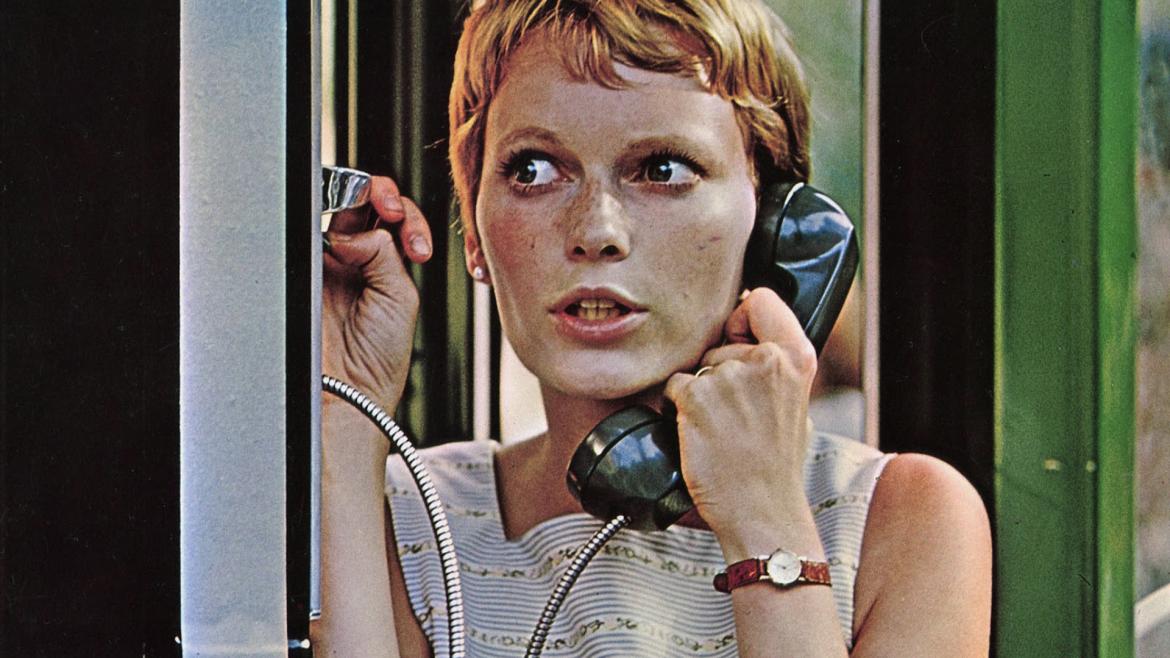
Rosemary's Baby (Movie Review)
I recently had the opportunity to attend a press re-screening of two of Roman Polanski’s most influential films. “Repulsion” and “Rosemary’s Baby” were the picks for the night to honor the work that Polanski has done in his career. I decided against writing a full blog post about the event and thought doing a review of “Rosemary’s Baby” would be more fitting. This cult classic has become a seminal horror icon and still holds up as a masterpiece of film. The pacing of events combined with the competency of each character is as subtle as the hellish baby bump growing on Rosemary’s tummy. Not only does it succeed in story telling but the score and cinematography stand stronger than most modern horror releases today. It was clear once the camera loomed over the Manhattan backdrop and the credits rolled that “Rosemary’s Baby” is still a tour de force.
The story is actually fairly simple. A couple, Rosemary Woodhouse (Mia Farrow) and her husband Guy (John Cassavetes), move into a newly vacant apartment at the famous Dakota in Manhattan. Wanting to start a family, they begin to try to conceive a child in the midst of Rosemary creating their ideal home and Guy shooting for any acting audition he can land. On days where Guy has to work, Rosemary gets to know some of the neighbors and tenants including a young woman living with an elderly couple; the Castevet’s. Sadly, one night the young woman is found dead on the sidewalk in front of the Dakota and police sign it off as a suicide. Rosemary extends her condolences to Minnie and Roman Castevet and a friendship is born between the young and old couples. Minnie becomes more interested and involved in Rosemary’s goal of having a child and even gives her good luck charms and teas to help the process. Guy grows closer with Roman to the point that he spends every night in the Castevet’s apartment talking business and the like. One night Rosemary is drugged by Guy and falls asleep against her desires. That night she dreams that someone, or something, is raping her while a group of cult leaders stand by in attention. The next morning she deduces it all as a dream but eventually learns that she is pregnant. Little does Rosemary know, but the involvement of everyone around her with the sudden pregnancy is more relevant than she first believed.
“Rosemary’s Baby” hits several strong notes throughout the film. The overall pacing and doling of information is given at a speed that is reminiscent of Hitchcock. Every frame that is shown is necessary without beating the audience over the head. This continually builds tension from the beginning to end which ultimately creates the horror of the film instead of several “jump scare” scenes. It’s masterfully depicted not only technically but through Rosemary’s character development; physically and symbolically. The joy and doubts that Rosemary experiences almost seem to grow each day, much like her physical stomach. The more information she learns about her pregnancy the worse her condition seems to become. The moment where it seems that she can’t take another day of suffering and accepts to take matters into her own hands, the pain suddenly subsides. Her emotional clarity seems to appease her physical ailments.
The score for the film is plain and simply fantastic. It remains subtle for a majority of the film but becomes more apparent during the more fantastical dream like scenes. Overall this supports the storytelling because as an audience we don’t know what is real and what is not. We want to believe that Rosemary really was raped during the night but the additional haunting score forces us to question how factual it all is. All of this, combined with the skill of the cinematography creates a mystery around the plot. Polanski chooses interesting “dream” scenes to depict. Most films go for the over the top images (see Rob Zombie’s “Halloween 2”) in dreams, but in “Rosemary’s Baby” every dream seems realistic. There are scenes of people just standing on a boat which then cut to Rosemary entering a room with a mattress. It blends realistic dreams with the narrative to ultimately cause doubt and mystery around what we’re actually seeing.
The film has its few flaws like any other picture. There are times where Mia Farrow’s acting seems confusing to how Rosemary would react which pulls the audience out of the film briefly. The ending is one of controversy and sadly causes some viewers to detest the entire film because of it. Overall though, “Rosemary’s Baby” is a required viewing not only for horror fans but film enthusiasts across the board. In a modern world of “the more gore the better” and “tongue in cheek cliche nods”, “Rosemary’s Baby” reminds audiences that a horror film can be horrific solely through its pacing and narrative.

